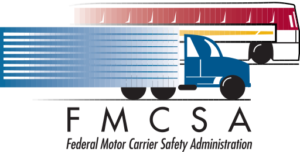Last month, the House of Representatives quietly passed HR 2577.
It is a bill to fund transportation—but it has a provision to stop the Federal Motor Carrier Safety Administration from updating the minimum insurance policy for commercial trucks … an insurance minimum that hasn’t been updated since 1980.
See Congress is wrong: why the minimum insurance limits for trucks need to change
What the trucking groups have wrong
The Owner-Operator Independent Drivers Association (OOIDA), which lobbied for this legislation, issued a statement about HR 2577*. They thanked the House for halting “the FMCSA’s rush to raise these (insurance) requirements.”
It’s been 35 years since the trucking insurance minimum was raised. By no stretch of the imagination is that a “rush.”
This is a long-overdue market correction.

FMCSA is part of the Department of Transportation and regulates the trucking industry in the U.S.
OOIDA’s statement makes several other specious claims. Among them:
- that current minimum is sufficient; and
- that raising the minimum insurance requirement will hurt small companies and owner-operators.
Their reasoning: FMCSA data shows “99 percent of crash damages are covered under current requirements.”
First of all, not all trucking groups agree.
Trucking Alliance, a lobbying group of large trucking companies, did their own study. They looked at almost 9,000 truck accidents crashes, and found that 42% percent of claims settlements were more than $750,000.
Insufficient insurance doesn’t protect truckers
OOIDA says they want to help and protect small trucking companies and owner-operators.
Blocking a market correction for insurance rates doesn’t do either.
How does it help truckers to have to pay for a minimum insurance policy that doesn’t offer them protection? Motor carriers have to buy the policy, but could still be liable for the remainder of a settlement in 42% of insurance claims.
Even if $750,000 covered 99% of the 100,000 people injured in truck accidents every year, the remaining 1% would be the 4,000 truck crash fatalities.
I have seen what happens when an 80,000 lb. truck collides with a car. Liability and damages in a wrongful death caused by a trucking accident is far more than $750,000.
And fatal truck crashes are absolutely devastating for everyone involved – including the trucker.
Inadequate insurance puts a trucking company and a trucker at risk. That’s a real risk for an owner-operator who may not be able to cover the cost of a judgment.
OOIDA also argues raising the minimum requirements would raise rates for many small or independent truck owner-operators.
That may be true: insurance rates are usually somewhat commensurate with coverage. By that logic, the cost of a policy would not have changed much since 1985.
But let’s assume rates go up for truck insurance policies – because that is exactly what is supposed to happen.
If you can’t pay for basic insurance, you shouldn’t be driving a semi-truck on our public highways.

One of the reasons we have a minimum for truck insurance is to establish an entry-level safety standard for commercial truck drivers.
If you can’t afford truck insurance, then you can’t afford routine truck maintenance, brakes, tires and equipment.
And we don’t want your truck on the road.
Minimum insurance coverage should have been tied to inflation from the start. This adjustment is far from radical, and it is decades overdue.
*OOIDA’s statement is ridiculous, and I’m not going to give it credence by linking to it. You can find it by searching “U.S. House to FMCSA: No arbitrary insurance increases”
What’s really wrong with the trucking industry? Truck drivers still paid by the hour.

Leave A Comment